Lot details Japan, Edo period (1615-1868). Ink, watercolors, gouache, and gold paint on silk. Mounted as a hanging scroll, on a silk brocade coated paper frame with copper repoussé handles. The deity seated in royal ease on a Buddhist lion, the hands holding a ruyi-scepter, all in a verdant landscape framed by a halo. Inscriptions: Three seals, each with the same phrase ‘Tenjin Chigi’ 天神地祇 (Gods (Kami in Japanese) of Heaven and Earth’). Provenance: From an old Swiss private collection. Condition: Very good condition with minor traces of use, and some creasing. The brocade frame with expected traces of wear and age. Dimensions: Image size 58 x 27.2 cm, Size incl. mounting 125 x 40.6 cm Tenjin chigi is a collective term for the kami of heaven (tenjin) and kami of earth (chigi). The expression was strongly influenced by Chinese thought; in China, ‘heavenly deities’ referred to the ‘Emperor Above in High Heaven’ (Haotian Shangdi); the sun, moon, and stars; ‘Master of the Middle’, (Sī-Zhōng) ‘Master of Destinies’ (Sī-Mìng) and deities of wind and rain, while ‘earthly deities’ included the gods of the soil and grain, the five sacred mountains, and the five annual sacrifices. In Japan, the expression tenjin chigi is used most often to refer to amatsukami and kunitsukami, but a certain discrimination is made in Kojiki and Nihongi based on Chinese thought, and chigi tends to be used only in those cases where ‘heavenly deities and earthly deities’ are mentioned together as a pair.
Lot details Japan, Edo period (1615-1868). Ink, watercolors, gouache, and gold paint on silk. Mounted as a hanging scroll, on a silk brocade coated paper frame with copper repoussé handles. The deity seated in royal ease on a Buddhist lion, the hands holding a ruyi-scepter, all in a verdant landscape framed by a halo. Inscriptions: Three seals, each with the same phrase ‘Tenjin Chigi’ 天神地祇 (Gods (Kami in Japanese) of Heaven and Earth’). Provenance: From an old Swiss private collection. Condition: Very good condition with minor traces of use, and some creasing. The brocade frame with expected traces of wear and age. Dimensions: Image size 58 x 27.2 cm, Size incl. mounting 125 x 40.6 cm Tenjin chigi is a collective term for the kami of heaven (tenjin) and kami of earth (chigi). The expression was strongly influenced by Chinese thought; in China, ‘heavenly deities’ referred to the ‘Emperor Above in High Heaven’ (Haotian Shangdi); the sun, moon, and stars; ‘Master of the Middle’, (Sī-Zhōng) ‘Master of Destinies’ (Sī-Mìng) and deities of wind and rain, while ‘earthly deities’ included the gods of the soil and grain, the five sacred mountains, and the five annual sacrifices. In Japan, the expression tenjin chigi is used most often to refer to amatsukami and kunitsukami, but a certain discrimination is made in Kojiki and Nihongi based on Chinese thought, and chigi tends to be used only in those cases where ‘heavenly deities and earthly deities’ are mentioned together as a pair.
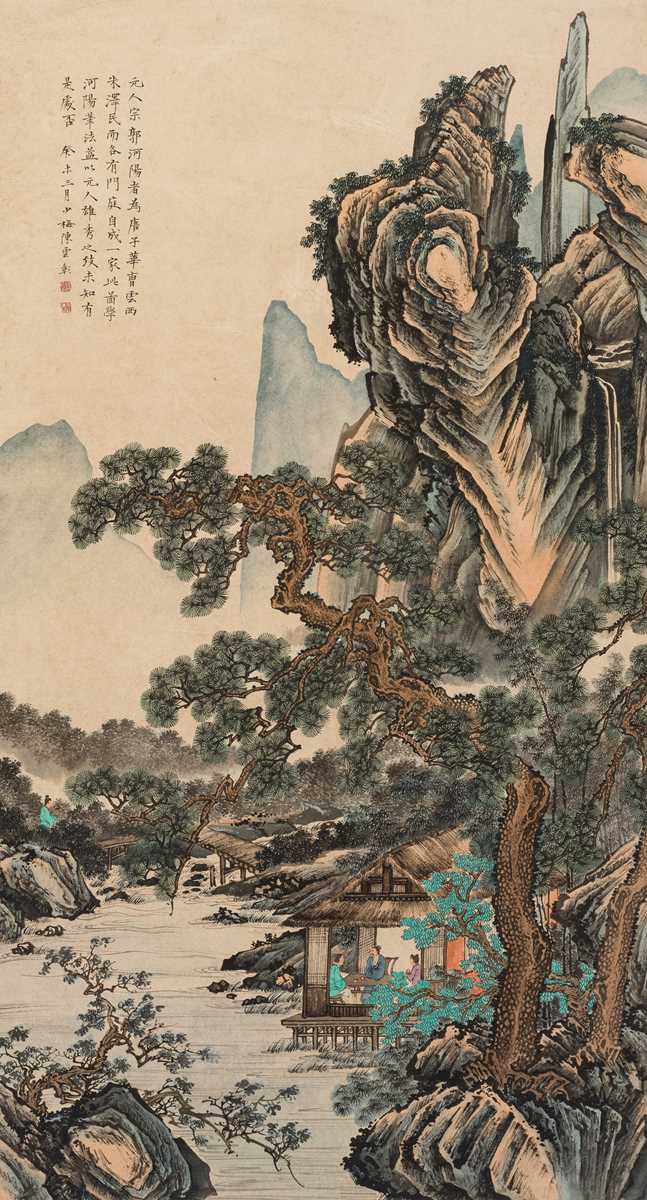
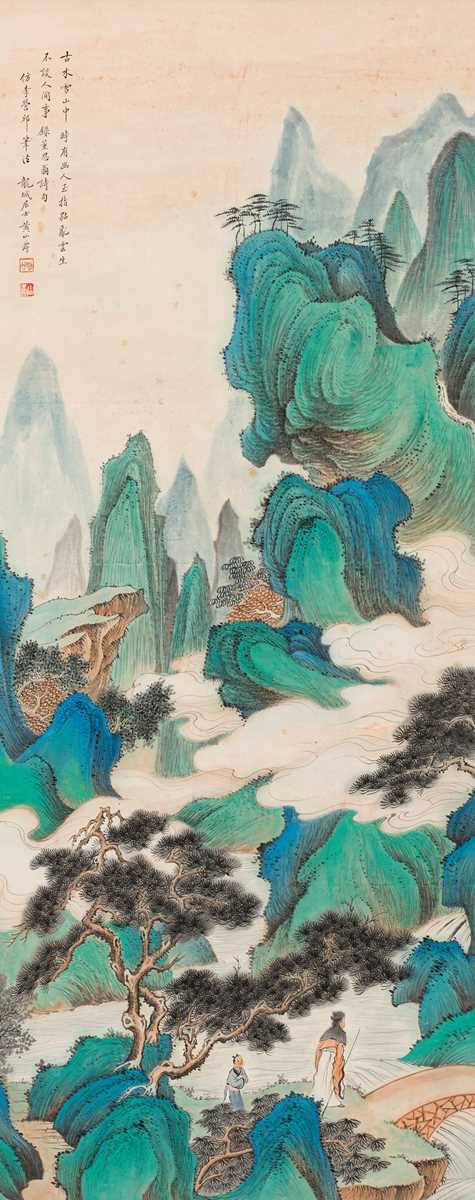

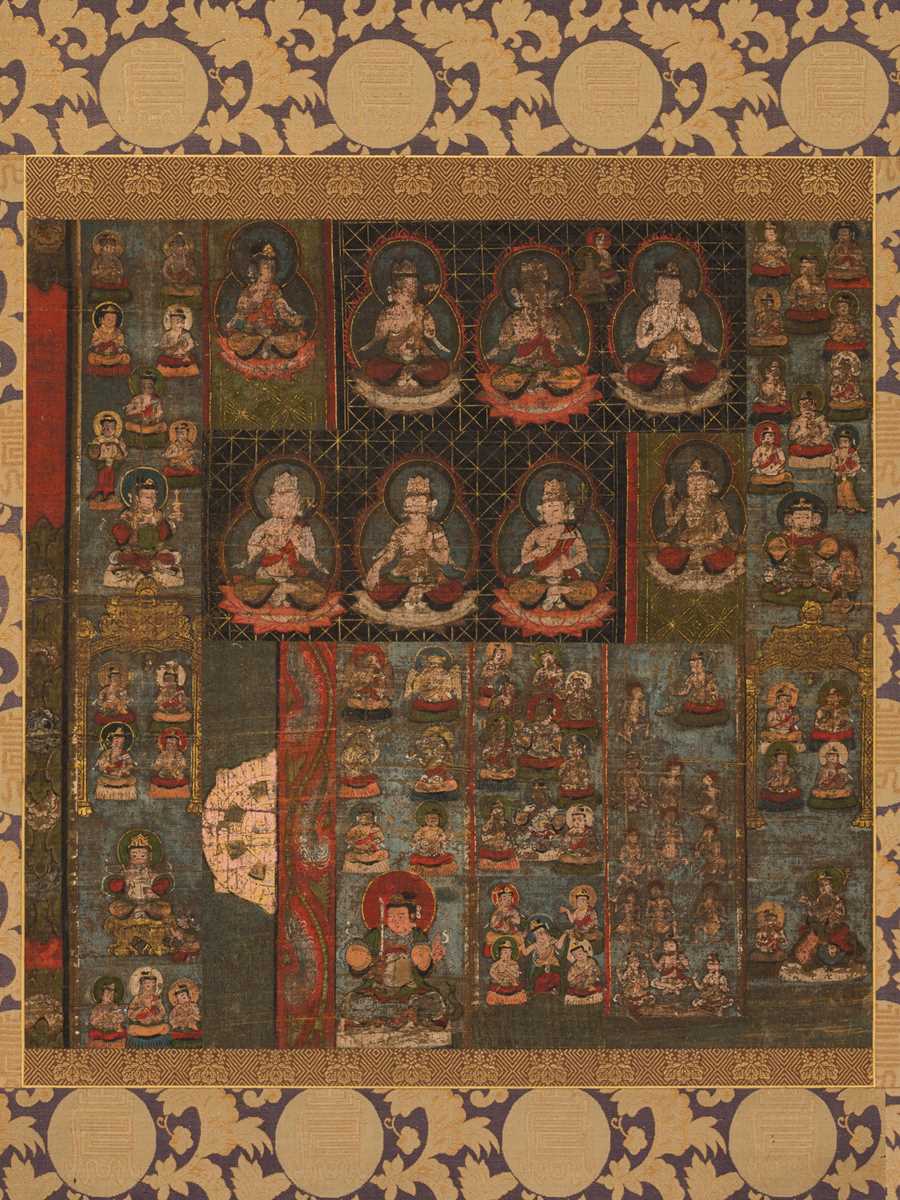
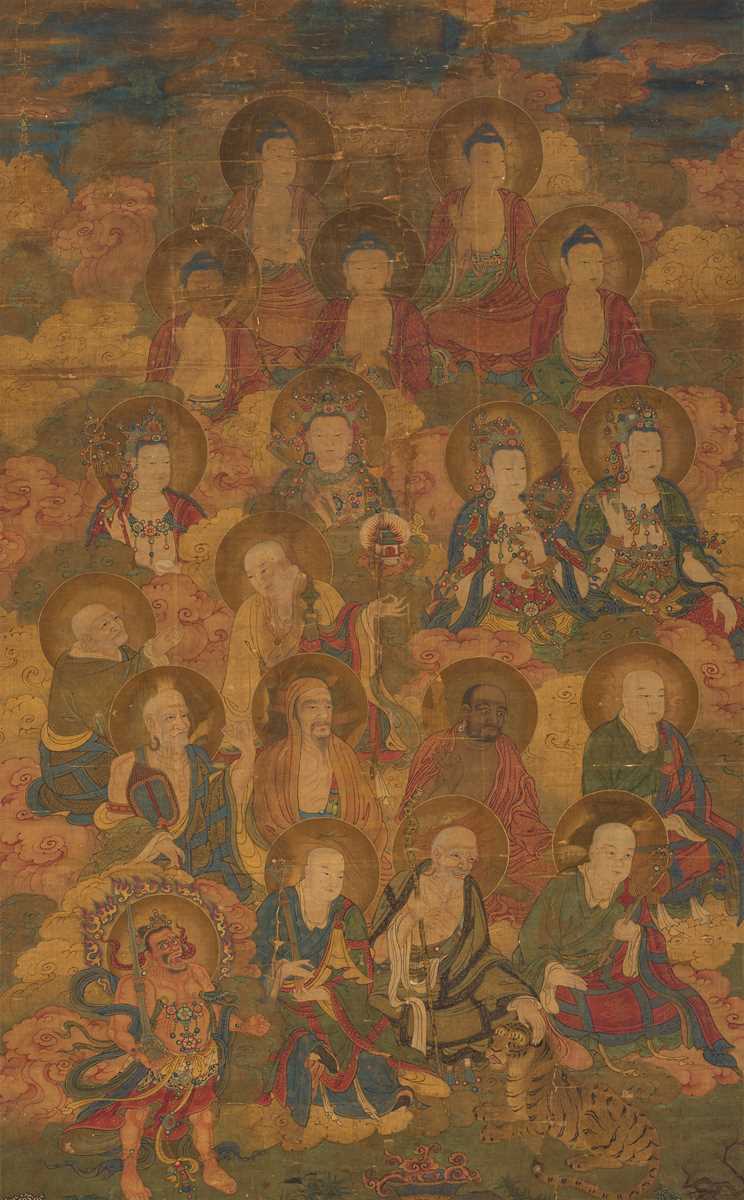
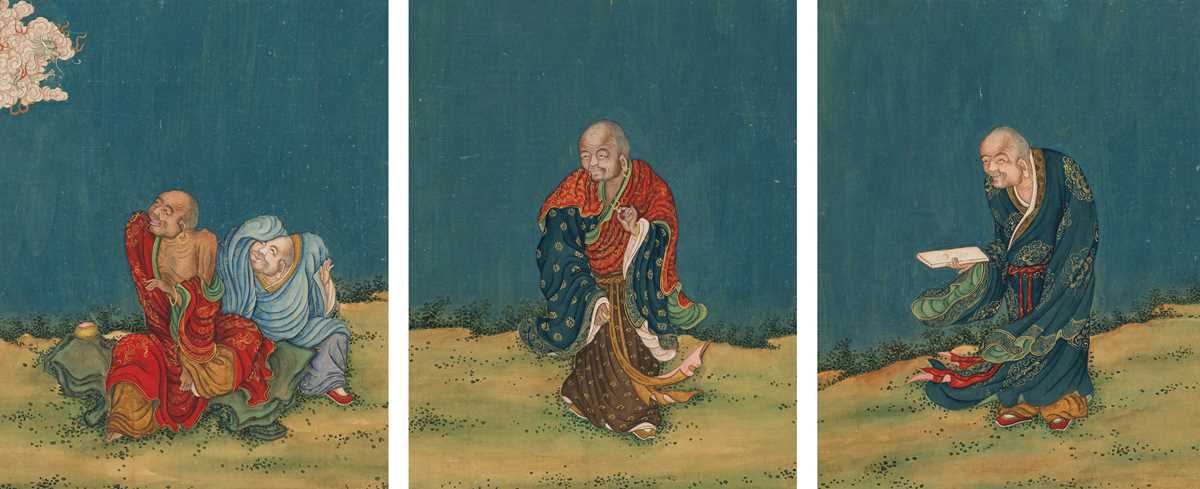
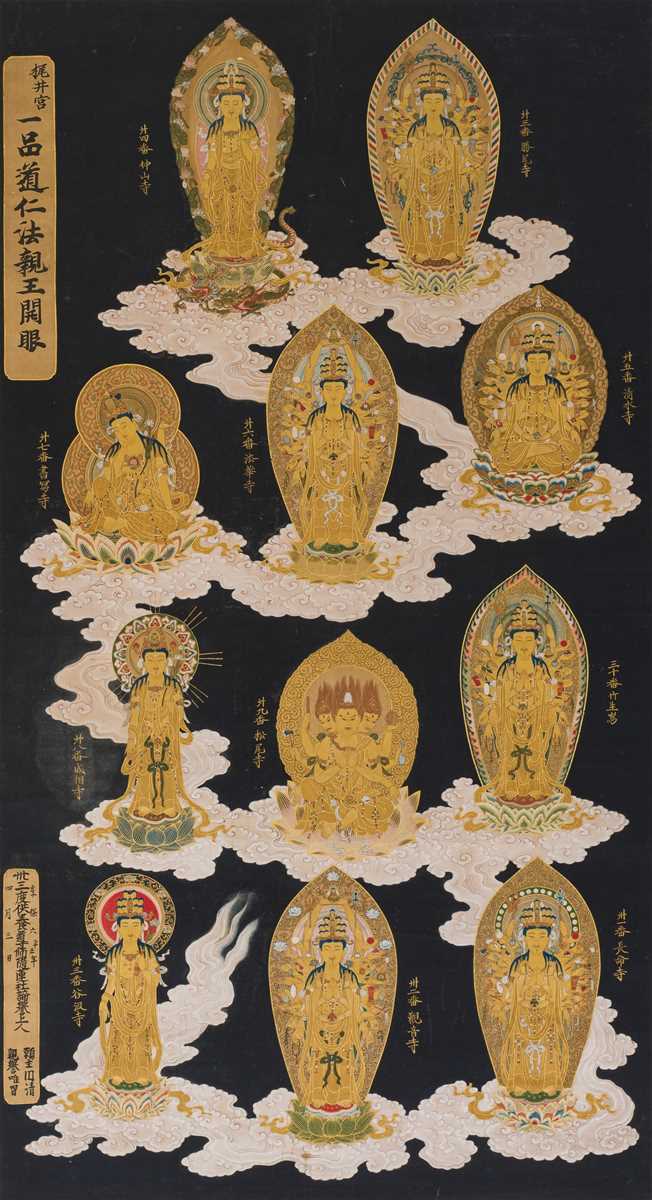
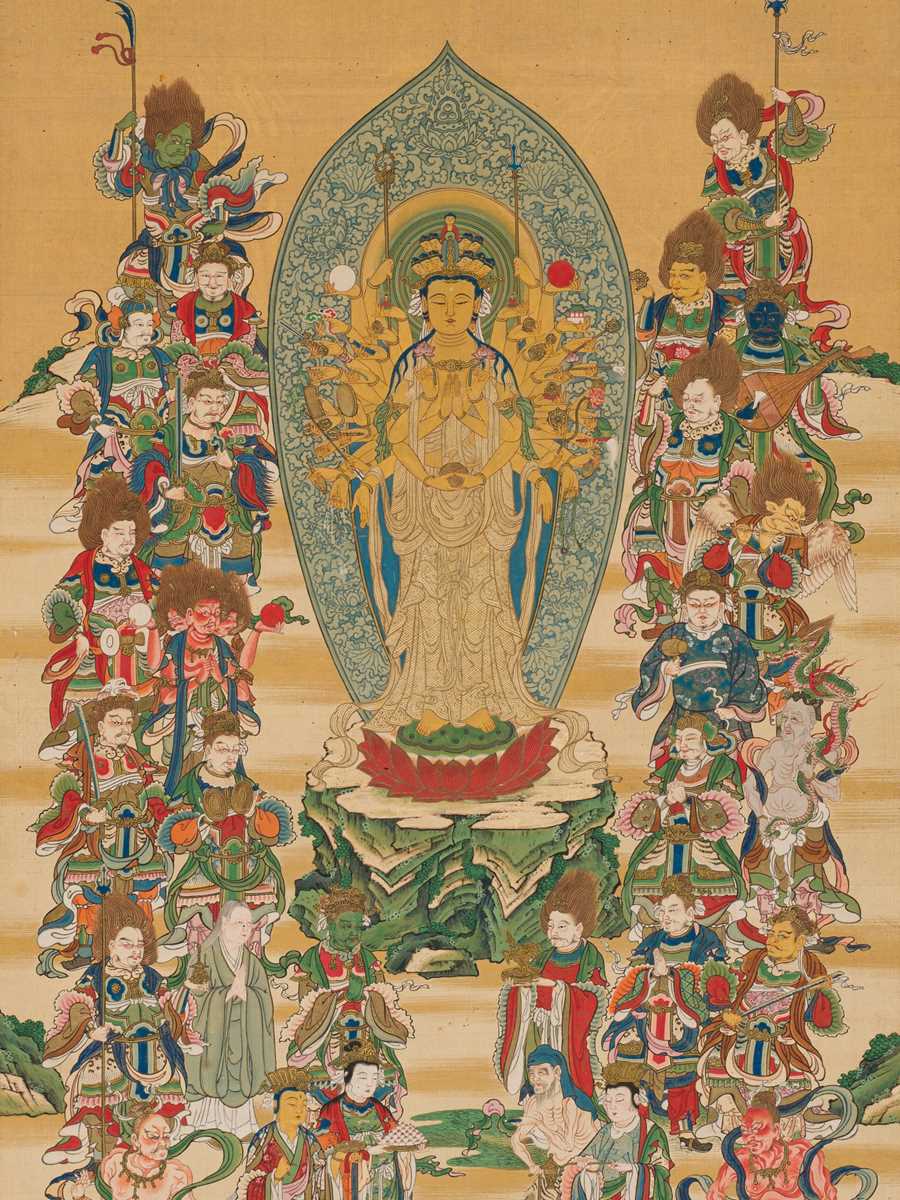
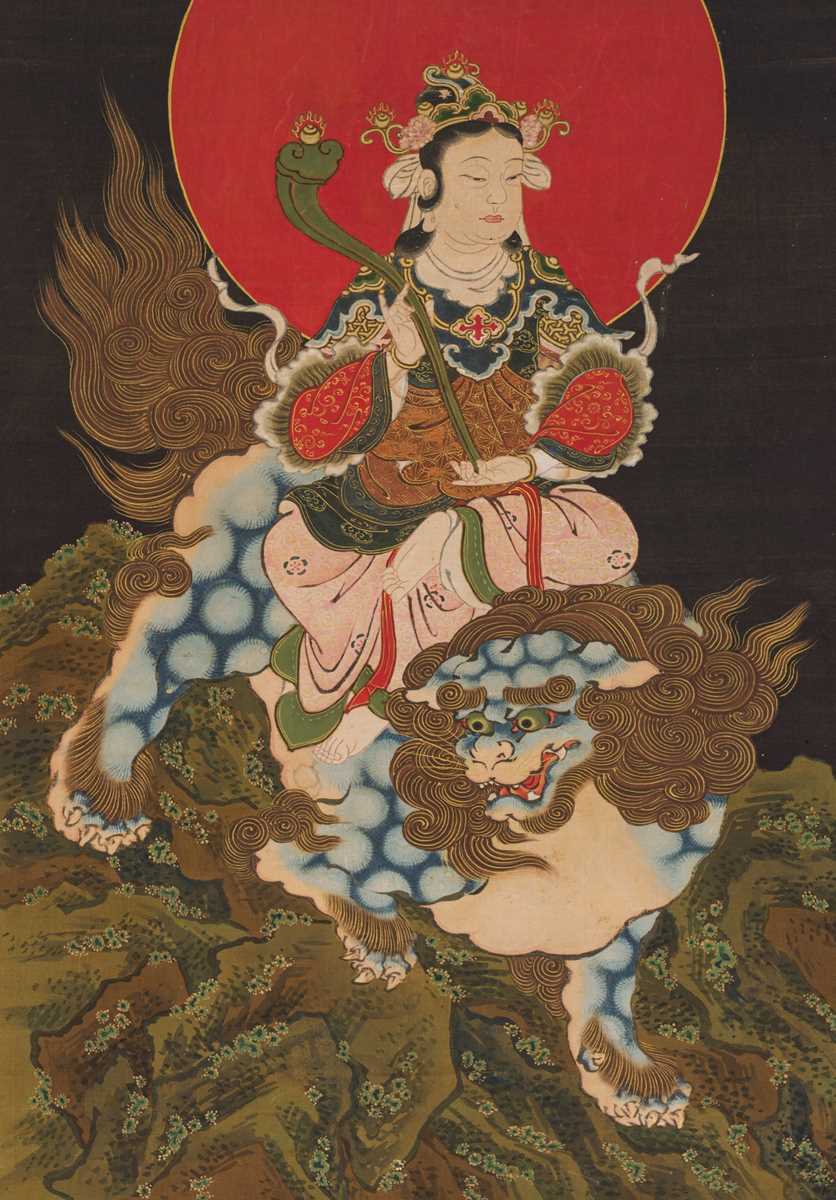
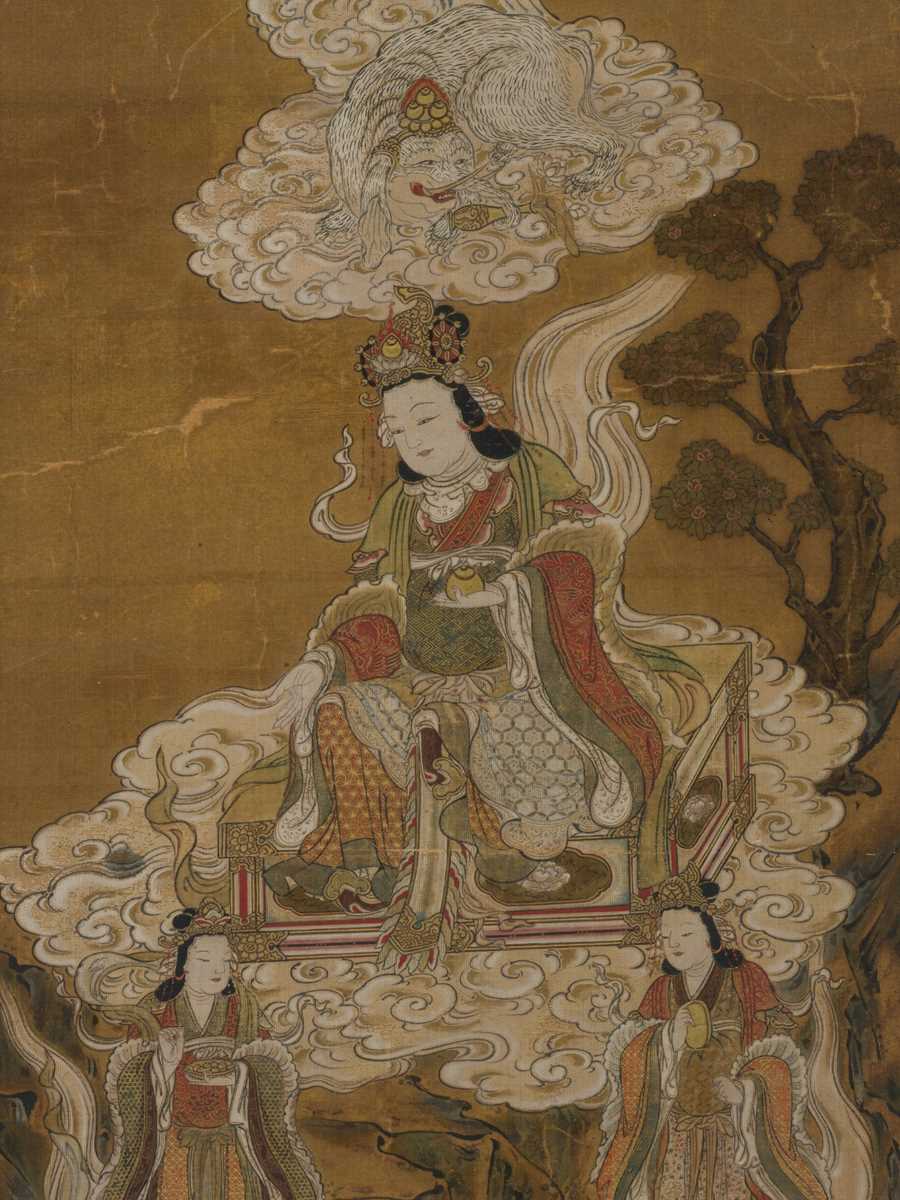
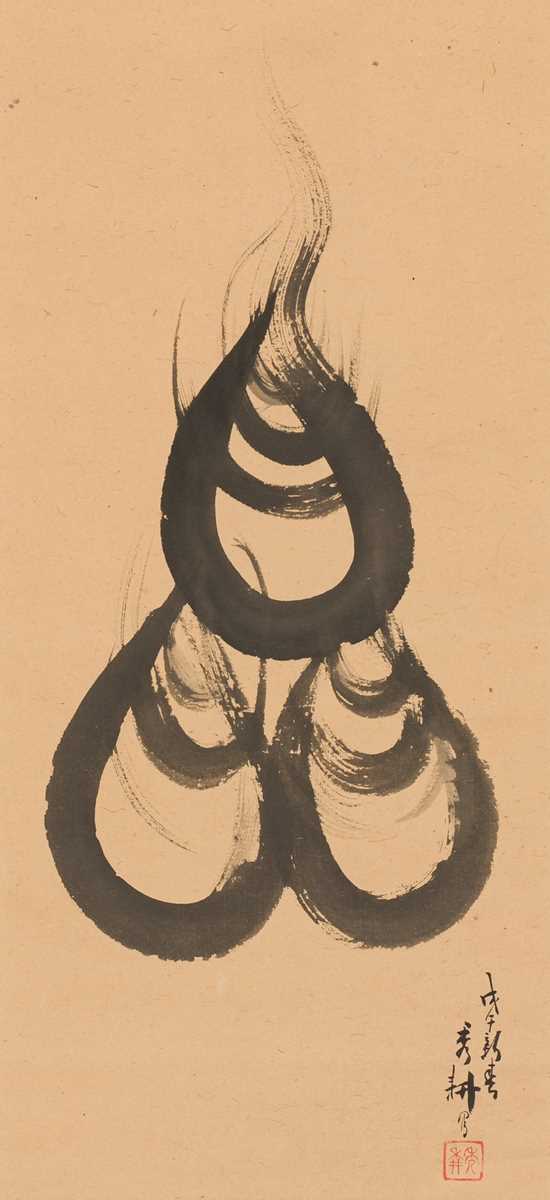
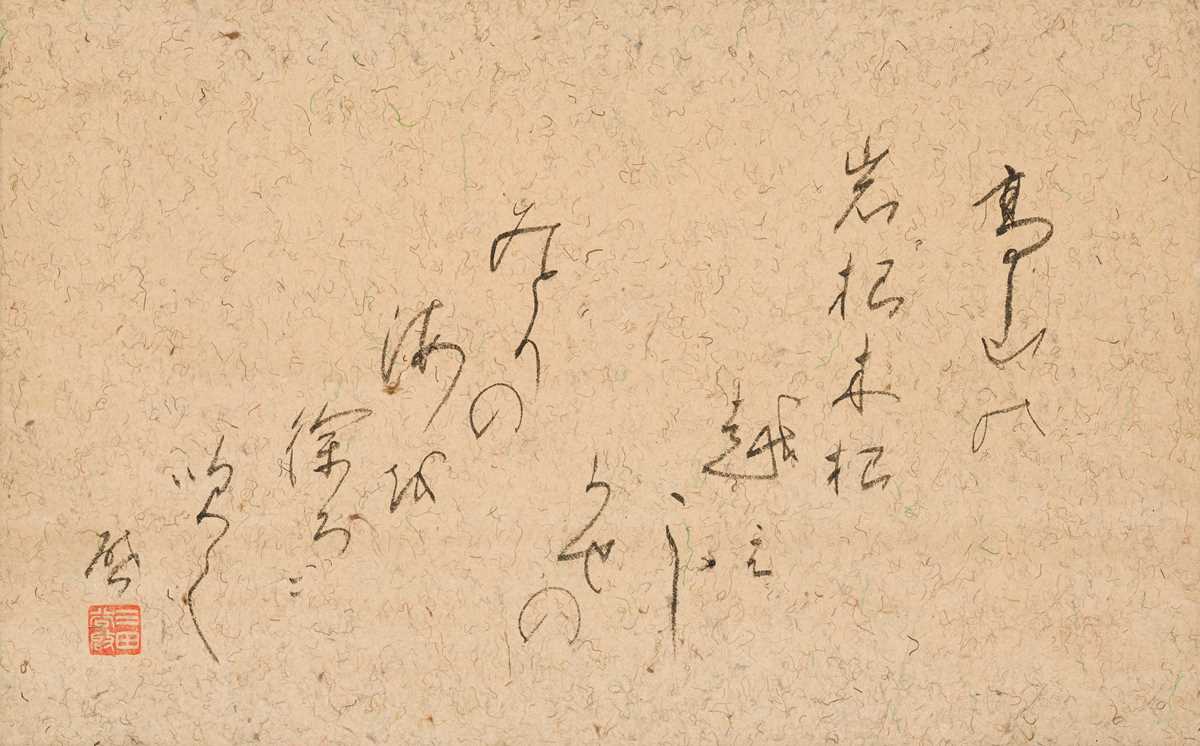
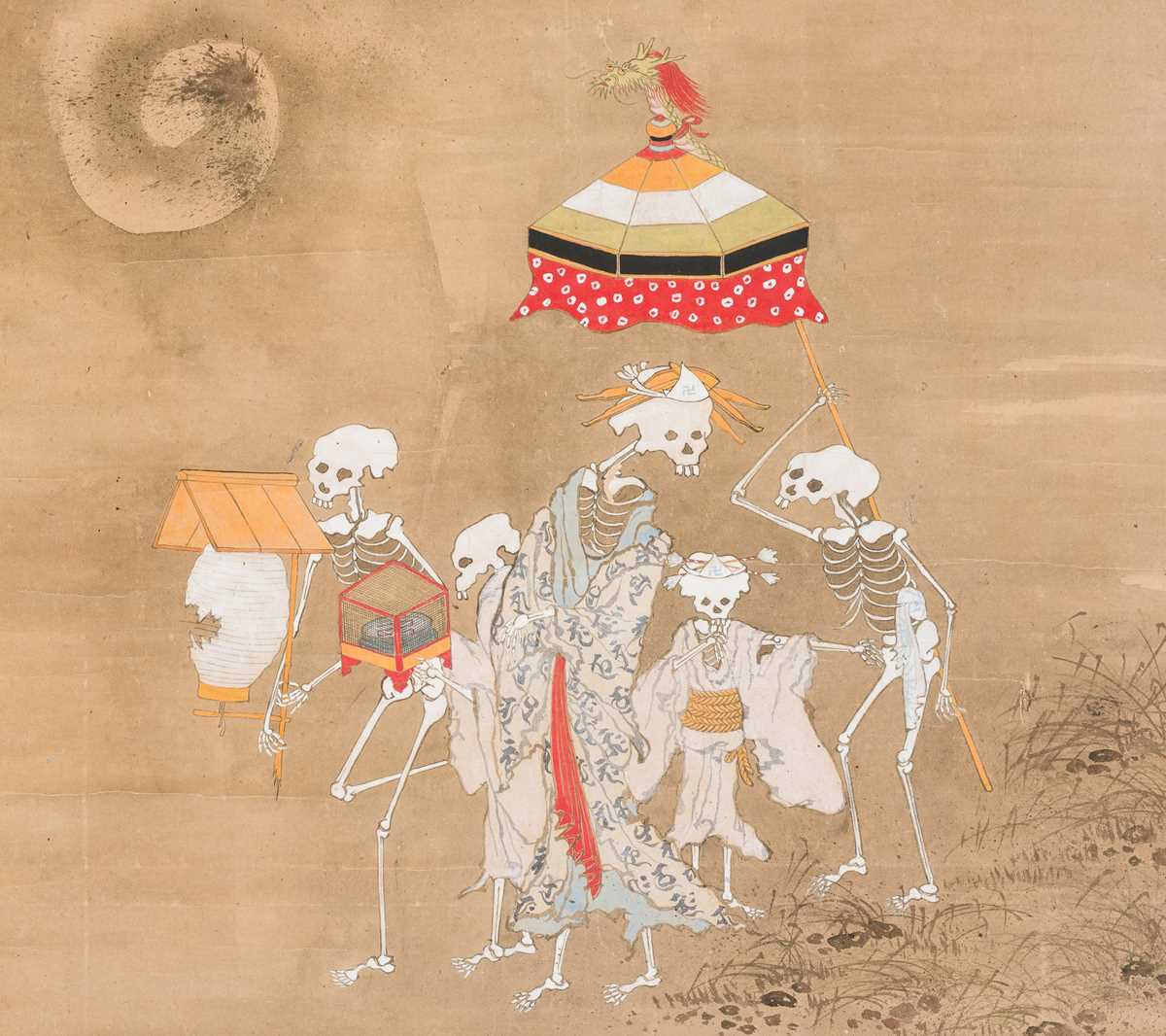
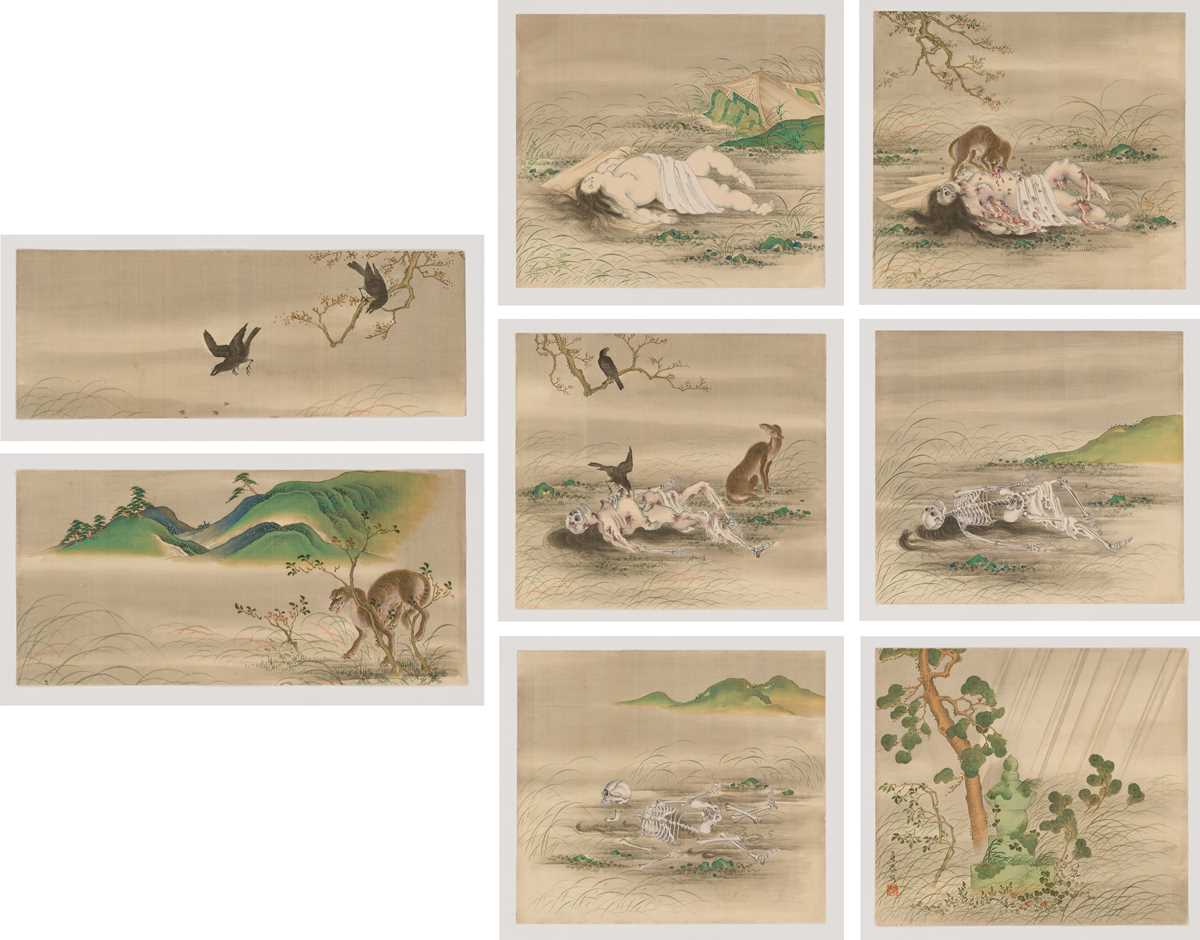
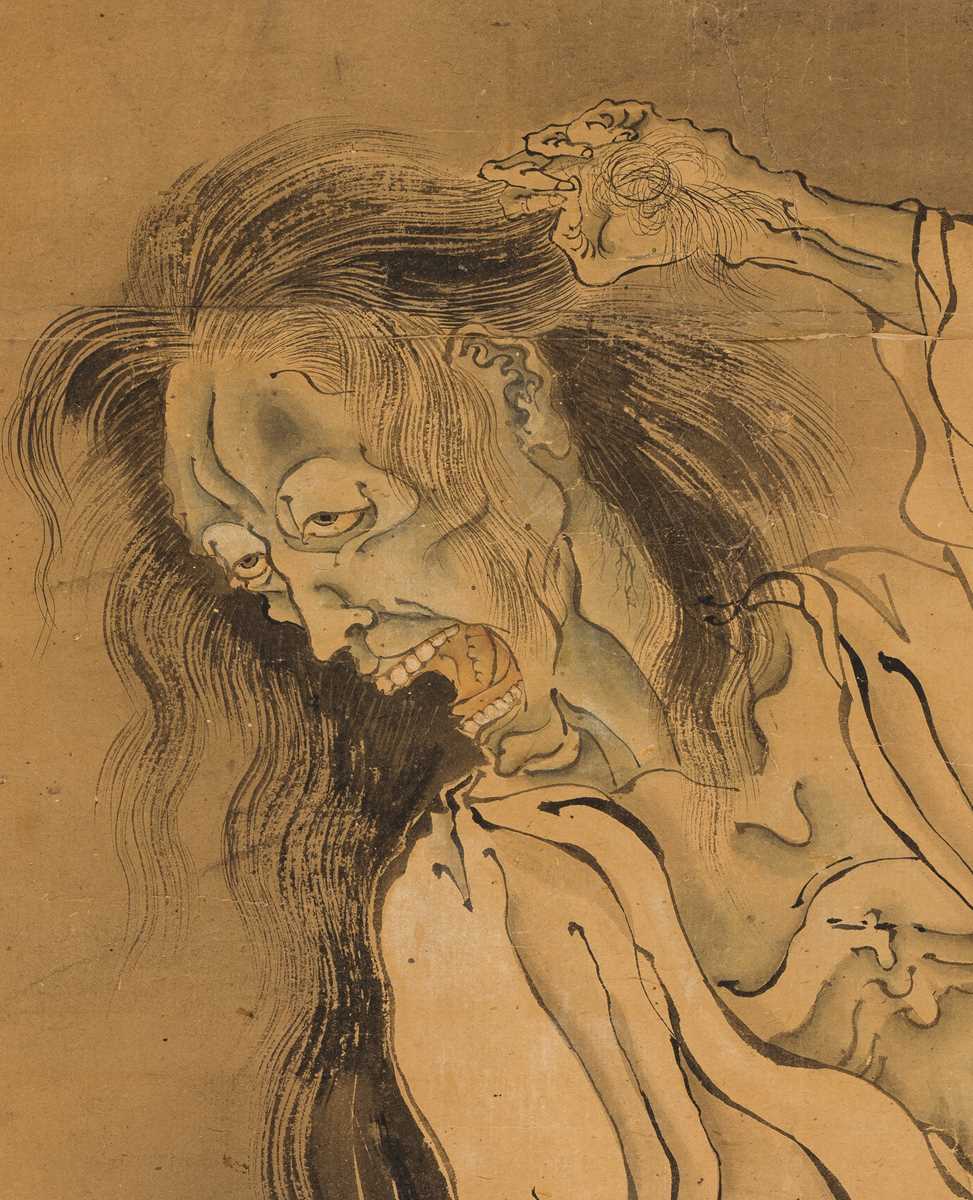
Try LotSearch and its premium features for 7 days - without any costs!
Be notified automatically about new items in upcoming auctions.
Create an alert